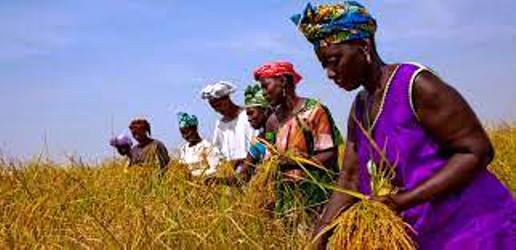By Justina Auta
Federal Government has unveiled plan to upscale its World Bank-partnered project, the Nigeria for Women Project (NFWP) to target more rural communities for economic empowerment.
The Minister of Women Affairs, Mrs Uju Kennedy-Ohanenye, made this known during a strategic meeting with the World Bank, UNICEF and other key partners in Abuja on Thursday.
Kennedy-Ohanenye said that restructuring and upscaling of the NFWP would transform the lives of rural women and generate revenue for them.
The minister added that the move would also serve as means of livelihood and improve the living conditions of rural dwellers.
Read Also: UNICEF Call: 119 Jobs for January & February 2024 | Apply Now
Responding, Taimur Samad, the World Bank Operations Manager, said “to us, gender empowerment is critically important and a big part of our portfolio.
“We are highly committed to delivering results and it has been very important part of our engagement with states.
“Most of what we do in Nigeria is at the state level, and we will continue with the collaboration at the federal level too.
“The NFWP is currently designed to reach the lives of millions of women and their families; World Bank is here at the service of the Nigerian government and its people.
“The bank is always open to new thoughts and ideas.”
On her part, Dr Rownak Khan, the UNICEF Deputy Country Representative, noted the successes in mobilising substantial financial resources for economic empowerment of women and girls across various regions in Nigeria through NFWP.
She said “this collaboration will be instrumental to improving women’s access to resources and support system, women entrepreneurship, stimulating the participation of women in business and private sector as well.
“It also reflects governmen’s commitment to achieving the Sustainable Development Goals (SDGs) and aligns seamlessly with the SDG 5, which is achieving gender equality and empowering women and girls.
“So, hopefully, this will become a catalyst for gender equality, breaking barriers and fostering sustainable development in Nigeria,” she added.
According to her, UNICEF is committed to encompassing all services related to children such as education, healthcare, including economic and social support to women in Nigeria.



